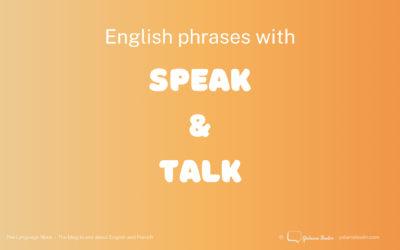Remember to do, remember doing, forget to do, forget doing: remember and forget are English verbs that can be followed both by a verb ending in -ing (a gerund) or by the infinitive form of the verb.
However, there is a difference in meaning and that difference is connected with time.
Here is how to make sure you understand the difference and use them properly:
Remember / Forget doing:
Use remember and forget followed by a verb in -ing for something that has happened (past!).
For example:
- I’ll never forget travelling across Europe.
- I’ll always remember travelling across Europe.
→ Here, in both sentences, choose the gerund (-ing) travelling because it is something that you have done, that has happened (in the past)
Remember / Forget to do:
Use remember and forget followed by an infinitive for something that you need or needed to do, that has or had to be done.
For example:
- Don’t forget to call the agency. → you need to call the agency
- Oh I’m sorry, I forgot to post the letter! → I had to post the letter
- Remember to buy something to eat on your way back home. → You need to buy something to eat.
There you are! It’s as simple as that! You now know how to use the English verbs remember and forget. Congratulations! 😉





Very clear my dear!
Thanks Ellen, glad to hear 🙂
Simple to follow, thanks!
But what about: I forgot to post the letter! vs I forgot posting the letter!
Both mean the same, right?
Thank you Mike. Actually, we would say “I forgot to post the letter” rather than “I forgot posting the letter” simply because if you forgot to do it, then it means that the act of posting the letter has not actually happened. Remember that the ending in -ing is only used for something that has happened. I hope this helps 🙂
the difference is this i forget posting letter means for example you are talking to your friend and you remember that one day you have forgotten to post means you are sharing with her/him about experience you have . and about i forget to post the letter means you want to submit it and you forget but you still have hope that by time pass you will submit them . the difference is some happen in past and no change can made on it and other are happened in present and you still have chance to make change that was my point
If I understand you well, I’m afraid I don’t really agree with this explanation.
“I forgot to post the letter” means you wanted to post the letter but you forgot to do it, i.e. you didn’t post the letter because you didn’t remember to do it.
“I forgot posting the letter” means you posted the letter but you forgot the fact that you posted it. This second sentence doesn’t sound very natural or isn’t a very common way of saying this. It is more common to use forget about doing something. So, it would sound more natural to say “I forgot about posting the letter”.
One way to explain the rule is to say that the gerund –the verb in -ING– happens before the verb forget: first you post the letter, then you forget about doing it.